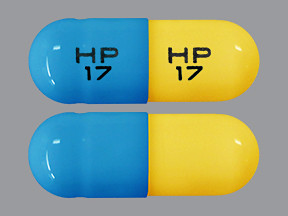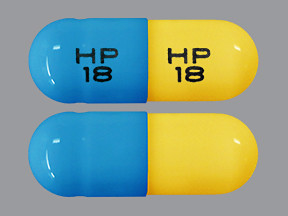TETRACYCLINE - ORAL
PHONETIC PRONUNCIATION: (TET-ra-SYE-kleen)
COMMON BRAND NAME(S): Sumycin
GENERIC NAME(S): tetracycline HCl
Uses
USES: Tetracycline is used to treat a wide variety of infections, including acne. It is an antibiotic that works by stopping the growth of bacteria. This antibiotic treats only bacterial infections. It will not work for viral infections (such as common cold, flu). Using any antibiotic when it is not needed can cause it to not work for future infections. Tetracycline can also be used in combination with anti-ulcer medications to treat certain types of stomach ulcers.
How to use TETRACYCLINE - ORAL
HOW TO USE: Tetracycline works best when taken on an empty stomach 1 hour before or 2 hours after meals. If stomach upset occurs, ask your doctor if you can take this medication with food. Take each dose with a full glass of water (8 ounces or 240 milliliters) unless your doctor directs you otherwise. Do not lie down for at least 10 minutes after taking this medication. For this reason, do not take it right before bedtime. Take this medication 2-3 hours before or after taking any products containing magnesium, aluminum, or calcium. Some examples include antacids, quinapril, certain forms of didanosine (chewable/dispersible buffered tablets or pediatric oral solution), vitamins/minerals, and sucralfate. Follow the same instructions with dairy products (e.g., milk, yogurt), calcium-enriched juice, bismuth subsalicylate, iron, and zinc. These products bind with tetracycline, preventing its full absorption. Dosage is based on your medical condition and response to therapy. For use in children older than 8 years of age, the dosage is also based on weight. For the best effect, take this antibiotic at evenly spaced times. To help you remember, take this medication at the same time(s) every day. Continue to take this medication until the full-prescribed amount is finished even if symptoms disappear after a few days. Stopping the medication too early may allow bacteria to continue to grow, which may result in a relapse of the infection. Inform your doctor if your condition persists or worsens.
Side Effects
Precautions
Interactions
Overdose
Images

- color
- yellow
- shape
- oblong
- imprint
- HP 17, HP 17

- color
- yellow
- shape
- oblong
- imprint
- HP 18, HP 18

- color
- yellow
- shape
- oblong
- imprint
- HP 17, HP 17

- color
- yellow
- shape
- oblong
- imprint
- HP 18, HP 18

- color
- yellow
- shape
- oblong
- imprint
- 5225, 5225

- color
- yellow
- shape
- oblong
- imprint
- 5266, 5266

- color
- yellow
- shape
- oblong
- imprint
- 5225, 5225
Reviews
Faq for TETRACYCLINE - ORAL
Tetracycline is an antibiotic medication used to treat various bacterial infections such as acne, urinary tract infections, respiratory tract infections, sexually transmitted infections, and certain skin and eye infections.
Tetracycline works by stopping the growth of bacteria. It does this by inhibiting the protein synthesis process in bacterial cells, thereby preventing them from multiplying and spreading.
Common side effects of tetracycline may include nausea, vomiting, diarrhea, loss of appetite, stomach upset, headache, dizziness, or rash. It can also cause photosensitivity, making your skin more sensitive to sunlight.
Tetracycline is usually taken on an empty stomach, 1 hour before or 2 hours after meals. It is important to follow the instructions provided by your doctor or pharmacist for the specific dosing schedule.
It is generally recommended to avoid consuming alcohol while taking tetracycline. Alcohol may reduce the effectiveness of the medication and increase the risk of certain side effects.
The duration of treatment with tetracycline depends on the type and severity of the infection. It is important to complete the full course of treatment as prescribed by your doctor, even if the symptoms improve before the medication is finished.
Tetracycline is generally not recommended for use during pregnancy or while breastfeeding. It can affect the development of the baby's bones and teeth if taken during pregnancy, and it can pass into breast milk and harm the nursing infant.
Yes, tetracycline can interact with certain medications, including antacids, calcium supplements, iron supplements, blood thinners, and some acne medications. It is important to inform your doctor about all the medications and supplements you are taking to avoid potential interactions.
Tetracycline is generally not recommended for children under the age of 8. It can interfere with the development of teeth and cause permanent staining or discoloration.
Disclaimer
IMPORTANT: HOW TO USE THIS INFORMATION: This is a summary and does NOT have all possible information about this product. This information does not assure that this product is safe, effective, or appropriate for you. This information is not individual medical advice and does not substitute for the advice of your health care professional. Always ask your health care professional for complete information about this product and your specific health needs.


No Reviews Yet